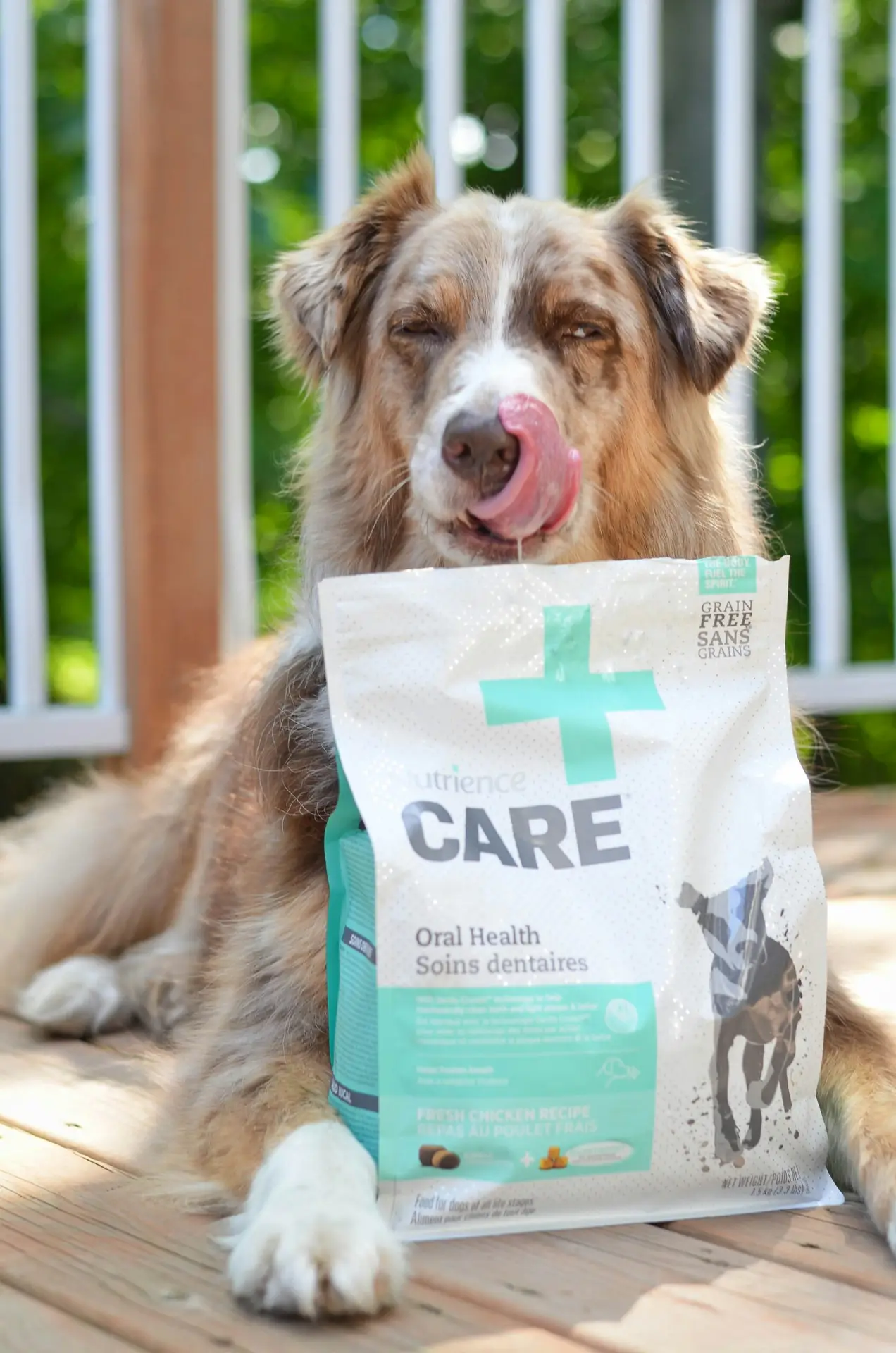Sensitive stomachs in puppies can be quite common and often manifest as various digestive issues that can cause discomfort for the animal. The term “puppy sensitive stomach“ refers to a condition wherein a puppy’s digestive system reacts poorly to certain foods or dietary changes, resulting in symptoms such as vomiting, diarrhea, or gas. Identifying a puppy with a sensitive stomach can be challenging, but certain signs can guide pet owners in recognizing the issue.
- Importance of Choosing the Right Puppy Food
- Nutritional Requirements for Puppies with Sensitive Stomachs
- Top Ingredients to Look For in Puppy Food
- What to Avoid When Selecting Puppy Food
- Recommended Puppy Foods for Sensitive Stomachs
- Homemade Puppy Food Options for Sensitive Stomachs
- Signs Your Puppy’s Food Isn’t Working
- Consulting with Your Vet for Puppy Dietary Issues
Common indicators of a puppy sensitive stomach may include frequent gastrointestinal upset, changes in appetite, or irregular bowel movements. If a puppy consistently exhibits these symptoms after eating, it may suggest an intolerance to specific ingredients in their food, such as proteins, grains, or fillers. Furthermore, pet owners should be aware of other contributing factors that can exacerbate a sensitive stomach. Stress, for instance, can lead to digestive disturbances, especially when a puppy undergoes significant changes in their environment or routine.
Moreover, underlying health issues can also play a critical role in developing a puppy sensitive stomach. Infections, parasites, or gastrointestinal disorders may lead to inflammation in the digestive tract, resulting in added sensitivity. Therefore, it is crucial for pet owners to monitor their puppy’s health closely and seek veterinary advice if they suspect their pet has a sensitive stomach. This may involve diagnostic testing to rule out any serious conditions and to create an appropriate dietary plan tailored to the puppy’s specific needs.
Ultimately, understanding the complexities surrounding sensitive stomachs in puppies is essential for ensuring their overall well-being. Addressing dietary intolerances, managing stress, and being vigilant about any health issues can greatly improve a puppy’s quality of life while aiding in the development of a healthy digestive system.
Importance of Choosing the Right Puppy Food
When it comes to the health and development of puppies, selecting the appropriate food is essential, particularly for those with sensitive stomachs. Puppies are in a critical stage of growth, and their nutritional needs are unique compared to adult dogs. Feeding a puppy with a sensitive stomach the wrong type of food can lead to various digestive problems, including diarrhea, vomiting, and discomfort. These issues not only affect the puppy’s immediate well-being but can also interfere with nutrient absorption, adversely impacting their overall growth and development.
Puppies with sensitive stomachs require a diet that is easily digestible, ensuring that they receive essential nutrients without irritating their gastrointestinal tract. Specially formulated puppy food often contains high-quality proteins and limited ingredients that can reduce the likelihood of an adverse reaction. Choosing the correct food supports better digestion, fewer gastrointestinal disturbances, and ultimately, a healthier puppy. Ingredients that are often beneficial include novel proteins, such as duck or venison, as well as easily digestible carbohydrates like sweet potatoes and rice.
The implications of poor dietary choices can extend beyond immediate health concerns. Ongoing digestive issues can lead to long-term health challenges, including malnutrition, stunted growth, and weakened immune systems. Established dietary experts suggest that unresolved stomach issues can contribute to behavioral problems, as discomfort may lead to increased anxiety or irritability in puppies. Therefore, investing time in selecting the right puppy food can yield significant benefits encompassing not just immediate digestive health but also long-term physical and behavioral wellness.
In conclusion, it is critical for pet owners to pay close attention to the dietary needs of puppies with sensitive stomachs. Making informed decisions about their nutrition will foster optimal health, growth, and overall well-being.
Nutritional Requirements for Puppies with Sensitive Stomachs
Puppies with sensitive stomachs require a carefully balanced diet to support their growth and development while minimizing digestive issues. The primary focus should be on high-quality ingredients that provide essential nutrients without causing gastrointestinal distress. Key nutritional components play a critical role in maintaining the overall health of these puppies.
Firstly, proteins are fundamental for growth and muscle development. A significant percentage of a puppy’s diet should come from easily digestible protein sources, such as chicken, fish, or lamb. These proteins not only provide the necessary amino acids but also tend to be less irritating to a sensitive digestive system compared to processed meat by-products.
Fats are another crucial nutrient, serving as a concentrated energy source and assisting in the absorption of fat-soluble vitamins. High-quality fats, like omega-3 and omega-6 fatty acids, support skin and coat health as well, which can be a concern for some puppies with sensitivities. Therefore, incorporating sources like fish oil or flaxseed can be advantageous.
Carbohydrates provide energy and should consist primarily of easily digestible sources. Options such as sweet potatoes or brown rice are gentle on the stomach and help maintain consistent energy levels throughout the day. Additionally, fiber plays an essential role in promoting healthy digestion, making it beneficial to include beet pulp or pumpkin in the diet.
Vitamins and minerals are vital for various physiological functions, reinforcing the immune system and supporting overall growth. A diet rich in natural antioxidants and essential nutrients will cater to the specific needs of puppies with sensitive stomachs. It is key to choose a formula that contains these nutrients in adequate amounts without unnecessary fillers, ensuring optimal health while soothing their delicate digestive systems.
Top Ingredients to Look For in Puppy Food
When selecting puppy food for dogs with sensitive stomachs, it is crucial to focus on specific ingredients that promote digestive health. One of the primary components is easily digestible proteins. These proteins, sourced from chicken, turkey, or fish, provide the essential nutrients puppies require while minimizing the burden on their digestive systems. They are gentle on the stomach and help support muscle growth and development without leading to gastrointestinal distress.
Another important ingredient to consider is whole grains. Brown rice, oatmeal, and barley are examples of whole grains that contain soluble fiber, which aids digestion and promotes healthy bowel movements. Whole grains also supply energy and essential nutrients, including B vitamins and minerals, which are beneficial for overall puppy health. Since puppies are in a critical growth phase, incorporating nutritional elements like these can have lasting positive effects on their development.
Moreover, probiotics are vital for promoting gut health in puppies with sensitive stomachs. These beneficial bacteria enhance the digestive process and help maintain a balanced gut flora. Frequently found in premium puppy food, probiotics can reduce the incidence of digestive issues, such as diarrhea or bloating, ensuring that puppies can absorb nutrients efficiently. A well-balanced gut contributes to a stronger immune system, helping puppies fend off illnesses as they grow.
Conversely, it is essential to avoid fillers and artificial additives commonly found in lower-quality puppy food. Ingredients like corn, soy, and artificial colors can provoke allergies and lead to digestive complications. By focusing on high-quality ingredients such as digestible proteins, whole grains, and probiotics, pet owners can ensure they are providing their puppies with the nourishment needed for a healthy start and a resilient digestive system.

What to Avoid When Selecting Puppy Food
When selecting puppy food for those with sensitive stomachs, it is crucial to be aware of certain ingredients and food types that may exacerbate digestive issues. Identifying and avoiding these elements can significantly contribute to your puppy’s overall health and well-being.
One of the most common factors to consider is the presence of allergens. Ingredients such as dairy, wheat, beef, chicken, and eggs are known to provoke allergic reactions in some puppies. As such, it is advisable to avoid products containing these common allergens, particularly if your puppy has previously experienced gastrointestinal disturbances. Instead, opt for food formulated with alternative protein sources, such as lamb or fish, which may be easier for sensitive stomachs to digest.
Another category to be cautious of includes artificial additives. Many commercial puppy foods include preservatives, colors, and flavor enhancers that can worsen digestive sensitivities. Look for products labeled as free from artificial flavors and preservatives to help mitigate potential negative reactions.
Furthermore, high-fat ingredients are often linked to digestive issues in puppies. Foods that are laden with heavy fats can lead to bloating and diarrhea, particularly in young dogs with delicate digestive systems. It is essential to select puppy food that contains moderate to low levels of fat while still providing adequate nutrition.
Excessively processed ingredients should also be avoided, as they may contain undesirable substances that can irritate the stomach. Whole, natural ingredients are generally recommended for puppies with sensitive stomachs, ensuring easier digestion and higher nutrient absorption.
By paying attention to these factors when choosing puppy food, pet owners can significantly aid in the management of their dog’s sensitive stomach, promoting better digestion and overall health.
Recommended Puppy Foods for Sensitive Stomachs
Choosing the right puppy food is critical for ensuring the health and well-being of pets with sensitive stomachs. Here are several recommended options that focus on gentle, easily digestible ingredients, specifically tailored for canine digestive needs.
One highly regarded option is the Royal Canin Size Health Nutrition Puppy. This food features a blend of highly digestible proteins and prebiotics, which help encourage a balanced gut microbiome. Its targeted kibble size also makes it suitable for all breeds, thereby supporting healthy growth and development in young puppies.
Another excellent choice is Hill’s Science Diet Puppy Sensitive Stomach & Skin. This formulation includes a unique blend of nutrients tailored for digestive health, with easily digestible chicken as its primary ingredient. Additionally, it contains omega-6 fatty acids and vitamin E for skin health, making it a comprehensive solution for sensitivities.
For those seeking a grain-free option, Blue Buffalo Wilderness Puppy can be a perfect fit. This recipe comprises high-quality proteins from real chicken and fish, supplemented with fruits and vegetables that provide essential antioxidants. Its grain-free formulation may help alleviate digestive discomfort while supporting your puppy’s overall vitality.
Lastly, consider the Purina Pro Plan Puppy Sensitive Skin & Stomach. With salmon as the primary protein source, this food is crafted to be easily digestible, reducing the chances of gastrointestinal disturbances. It also contains prebiotic fiber, which aids in digestive health and promotes nutrient absorption.
When selecting puppy food for sensitive stomachs, it is advisable to consult with a veterinarian to ensure the best choice tailored to your puppy’s unique needs. Each product in this list not only prioritizes digestive care but also nourishes overall puppy health effectively.
Homemade Puppy Food Options for Sensitive Stomachs
Preparing homemade puppy food can be a rewarding way to manage your pet’s sensitive stomach. Tailoring meals specifically for your puppy’s dietary needs not only promotes digestive health but also ensures that they receive the essential nutrients required for optimal growth. A well-balanced homemade diet can be constructed by incorporating readily digestible ingredients, while being mindful of potential allergens.
When crafting meals for puppies with sensitive stomachs, it is crucial to include high-quality protein sources that are gentle on the gastrointestinal tract. Options such as boiled chicken, turkey, or fish can serve as excellent foundations for your homemade recipes. Adding carbohydrates such as plain white rice, sweet potatoes, or pumpkin can provide a source of energy while being easy to digest. These ingredients work harmoniously to create nutritious meals that support your puppy’s health yet accommodate their dietary restrictions.
One straightforward recipe includes a mixture of boiled chicken, white rice, and sweet potatoes. Begin by boiling the chicken until thoroughly cooked, then shred it into small pieces. Cook the white rice separately and prepare the sweet potatoes by pureeing them after steaming. Combine all the ingredients in a bowl, ensuring they are well-mixed and cooled before serving. This dish is not only palatable for most puppies but is also designed with sensitive stomachs in mind.
It is also essential to include healthy fats, such as fish oil, to promote a shiny coat and overall well-being. However, moderation is key, as too much fat can upset a delicate stomach. Additionally, always consult with a veterinarian prior to changing your puppy’s diet or introducing homemade food, as they may provide specific guidelines and ensure all nutritional needs are met. By taking an informed approach, homemade puppy food can be a viable option for managing sensitive stomachs effectively.
Signs Your Puppy’s Food Isn’t Working
As a pet owner, it is crucial to monitor your puppy’s health and well-being, particularly when it comes to their diet. A puppy’s food plays a pivotal role in their growth and overall health, and if the food is not suitable for their sensitive stomach, various signs may manifest. Recognizing these signs early can help you make necessary adjustments to ensure your puppy receives the nutrition they require without experiencing discomfort.
One of the most common indicators that your puppy’s food may not be suitable is the occurrence of vomiting. If your puppy frequently regurgitates after meals or experiences unintentional vomiting throughout the day, it may signify that their food is too harsh for their digestive system. Alongside vomiting, diarrhea is another critical symptom of food intolerance. Loose or watery stools can result from the ingredients in the puppy’s food that don’t sit well with them, leading to dehydration and further complications if not addressed promptly.
Behavioral changes can also be a telling sign. If your energetic puppy suddenly becomes lethargic, disinterested in playtime, or appears uncomfortable, their food may be affecting their overall well-being. Additionally, a decrease in appetite or reluctance to eat can suggest that they are experiencing discomfort related to their current diet.
Another important aspect to observe is any changes in energy levels. If your puppy seems unusually tired or lacks the usual enthusiasm, it may be an indicator that their food isn’t meeting their nutritional needs or is causing digestive distress. In light of these symptoms, it is advisable to consult your veterinarian. They can recommend dietary changes, suitable food alternatives, or specific ingredients to avoid, ensuring your puppy’s sensitive stomach gets the appropriate care it needs.
Consulting with Your Vet for Puppy Dietary Issues
When it comes to selecting food for puppies with sensitive stomachs, one can’t overstate the importance of consulting with a veterinarian. A veterinarian possesses specialized knowledge and training that allows them to understand the unique dietary needs of puppies, particularly those experiencing gastrointestinal distress. By discussing your puppy’s dietary concerns with a vet, you ensure a comprehensive approach to their health that considers not only their nutritional needs but also any underlying medical conditions that might be contributing to their sensitivity.
During your consultation, it is advisable to prepare a list of specific questions to maximize the effectiveness of the meeting. Inquire about the signs that indicate a puppy could have food sensitivities or allergies, as early recognition can significantly impact your pet’s health. A vet can guide you on the best types of food to trial, such as hypoallergenic or limited-ingredient diets designed for puppies with sensitive stomachs. Additionally, you should ask about potential allergens commonly found in commercial puppy food and how to identify them.
It is also crucial to discuss feeding strategies with your veterinarian, including the right portion sizes and feeding schedules that could mitigate digestive issues. For example, some puppies may benefit from smaller, more frequent meals, while others might require specific dietary fiber sources to promote healthy digestion. Moreover, if your puppy has previously experienced adverse reactions to certain foods, be sure to document these instances, as they provide valuable insight that can aid your vet in making informed recommendations.
Ultimately, your veterinarian is not just a resource for selecting puppy food; they are an invaluable partner in ensuring your puppy’s overall health and well-being. Regular consultations about dietary issues can facilitate timely interventions and provide peace of mind as you work together to find the most suitable nutrition for your puppy.






